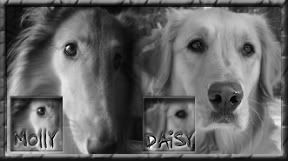everyday when I walk my dogs. People like this really, really scare me. What about cigarette smoke? Second hand smoke alone kills 50,000 people a year.
It's time to put an end to the carnage of pit bulls
By Matt Rosenberg
Special to The Times
America can count on two things this summer: Western forest fires and gruesome carnage by pit bulls. The latter is already well under way in Washington, and across the U.S.
Yet, experts aplenty criticize breed-specific regulations. They urge more public education. Unfortunately, though, too many thuggish or careless pit bull owners aren't interested in learning responsibility.
And as it happens, pit bulls stand alone among dogs as killers. A study in the Journal of the American Veterinary Medical Association shows that over 20 years, pit bulls lead in human dog-bite-related fatalities for which breed was reported. They're followed at some distance by Rottweilers, then German Shepherds and Huskies.
According to the Centers for Disease Control, pit bulls are also among the breeds that bite most often. About 800,000 of the estimated 4.7 million annual U.S. dog bites require medical treatment. Insurance claims total $1 billion a year.
Definitions of pit bulls include American Pit Bull Terriers, Staffordshire Bull Terriers, American Staffordshire Terriers and mixes including those breeds. Pit bulls have historically been fighters. Many are still bred for violence. Thus, local laws may ban them or require they be caged, or muzzled and restrained ? sometimes even micro-chipped and heavily insured.
In other words, they're ticking time bombs, as Western Washington has been recently reminded. In three West Seattle incidents this spring, pit bulls attacked dogs (one died, another was severely injured) and a man, Joseph Muñoz. He suffered three broken ribs, a punctured lung, broken back and multiple scars. Muñoz says, "These dangerous dogs need to be taken off the streets of Seattle."
In March, a pit bull mauled a 3-year-old boy to death in Lakewood, Pierce County. In April, two pit bulls attacked a Renton police dog pursuing a suspect, then were shot by police.
Nationwide reports this spring further highlight the pit bull menace. Here's a very partial sampling.
? In Cortlandt, N.Y., a seated 75-year-old woman visiting a friend's home bled to death after the friend's pit bull suddenly attacked her face.
? A roommate's pit bull attacked a Huntington, W. Va., man, breaking hand bones and nearly severing his pinky.
? A 52-year-old electric meter reader lost an ear and part of her scalp to a pit bull in Brevard County, Fla.
? Pit bulls attacked a 64-year-old Augusta, Maine, man outside his apartment. He got 14 stitches for wounds on an arm and wrist.
? In suburban Salt Lake City, a 3-year-old girl in a park had her face torn apart by a pit bill.
? In the Bronx, another badly ripped up a 10-year-old boy's leg.
"Certain breeds represent a very significantly increased risk of death or injury," a Nationwide Mutual Insurance spokesman told the Chicago Tribune. The company won't cover households with pit bulls, Rottweilers and four other breeds. Other industry officials agree breed is increasingly a major factor.
Governments are wary, too. Pit Bull Rescue Central reports Denmark, Norway, Holland and Romania ban pit bulls, likewise at least 55 U.S. jurisdictions. These include Denver; Miami-Dade County; Prince George's County, Md.; and Puerto Rico. Some bans also include Rottweilers.
The Spokane City Council recently banned non-service animals from large downtown events. Police told the Spokesman-Review they're especially concerned about breeds including pit bulls and Rottweilers. A captain notes, "Our fear is one of these dogs is going to take a child's face off... "
Last week, the Seattle City Council added animals that severely injure another to its definition of dangerous critters, subject to micro-chipping, banishment or humane disposal. Also new is a civil citation of "potentially dangerous" animals for minor bites and various aggressive behaviors.
It's an improvement, but a pit bull ban is required here. True, complications can arise about what is and isn't a pit bull, and a ban isn't always easy to enforce. However, this only underscores the need for clear definitions and procedures, and prioritization of funding. We need safety, not excuses.
So-civil Seattle already bans sidewalk-sitting and public urination; and will continue through this summer exterminating geese, because their abundant fecal matter causes "swimmer's itch" and may pose disease risks. That's all well and good. But neither the homeless nor pooping waterfowl chew up dogs, able-bodied adults or children, with "jaws of death."
People now deter attacking pit bulls with their own weapons, like baseball bats, recently near Vancouver, Clark County, and Santa Fe, N.M.; and a handgun, in Columbus, Ohio.
Something is fundamentally askew when clandestine, organized pit bull fights are sprouting nationwide; when so many pit bulls are abandoned; and when others regularly run free, or bust loose and attack.
You might own a docile, loving pit bull. Others may responsibly harbor a perfectly legal Bushmaster XM15-A3 assault rifle. Neither should be allowed.
Matt Rosenberg is a Seattle writer and regular contributor to The Times' editorial pages. E-mail him at [email protected]








 Reply With Quote
Reply With Quote
 Ok, ill stop.
Ok, ill stop.





 I am so glad your dogs are okay. Not to take this too literally, but I can see why you tend to distance yourself from the breed.
I am so glad your dogs are okay. Not to take this too literally, but I can see why you tend to distance yourself from the breed.  )
)

Bookmarks